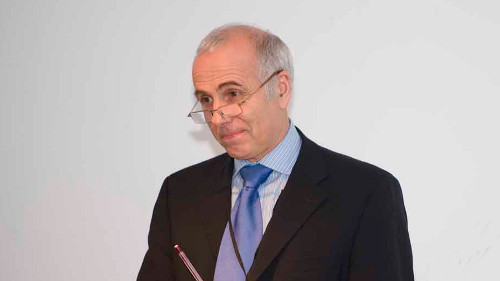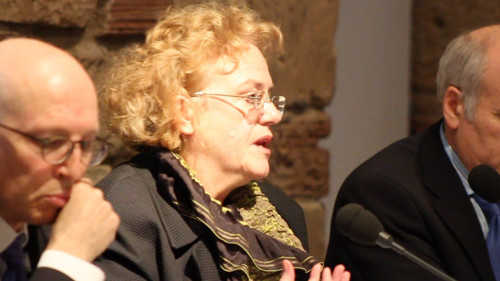
Prof. Philip Schlesinger: The first point, with some subsidiaries, is that one thing that came up very strongly was that there were different conceptions of value present within the group. There was certainly a tension between thinking about the creative economy as a public entity -as an object of policy – and the cultural practices of those at the coalface. There was a tension between what people thought about policy and what they thought about cultural work.
The second main point is the “Where to start from?” question. People start, inevitably, from what they’re most interested in. There was quite a lot of discussion about rights issues and various dimensions of that, which I won’t go into. Then there was an interesting getting to grips with what’s happening in the real, experienced world for the vast majority of people in creative practices – whose rewards are very often slim.
The third main point, which I think is quite a problematic one for the CREATe management team to consider, is what kind of engagement could there be with creators beyond actually researching them. And the latest shift on that, and I think it’s very pertinent, and we haven’t talked about it in the plenary, is the way in which the economic crisis is affecting creative work and in particular, the increase in the precariousness of creative work for the vast majority of artists.

Prof. Janis Jefferies: We wanted to pick up on some of the things that came from Philip’s workshop, particularly the question of engagement. So, the research wasn’t necessarily applied, but certainly to some kind of direct participation and engagement with what we really began to explore, which was hybrid practices, people working across a range of different kinds of production, whether that’s music and writing or for others they were both artists and lawyers. So, getting those insights from that conversation, we thought would be very important.
We also picked up on the question around the issue of value, cultural, economic, and as things have begun to play out in between spaces of production and distribution. We were also really concerned, we had really good comments, those who reminded us that things aren’t reinvented continuously but we’ve learnt from history, the complexities of history, from thinking about new communities of production, although there have always been communities of production, and they just have a different shift. And in those new communities whether that’s online or in different physical spaces, there’s always been dialogue about collaboration, but whether it is nuanced enough, that’s why the practitioners to whom we spoke were very keen to have their voices heard.
 Resource
Resource